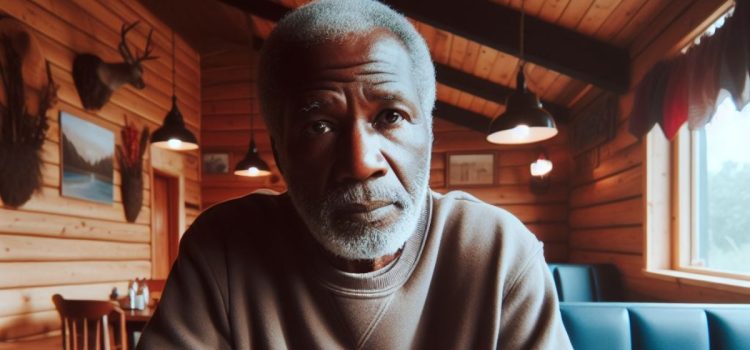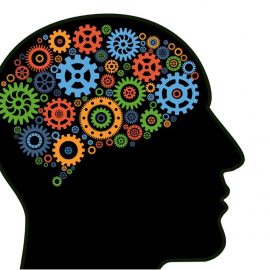
What happens in your brain when you lose someone you love? Why do you keep expecting them to come back even though you know they’re gone?
The psychology of grief involves complex changes in how our brains process loss. In The Grieving Brain, Mary-Frances O’Connor reveals the science behind common grief experiences. Her research shows why the mind’s responses are natural parts of how it adapts to loss.
Keep reading to discover why your brain responds to grief the way it does.
The Psychology of Grief
O’Connor discusses the psychology of grief, explaining that grieving represents a transformation in the way our brains work. This causes different types of thinking that may feel uncontrollable, confusing, or unhealthy, but most of the time they’re a natural part of the grieving process. Understanding why these thoughts happen can help us feel less controlled by them and better able to deal with them. We’ll examine contradictory beliefs, intrusive thoughts, counterfactual thinking, and rumination as responses to grief.
#1: Contradictory Beliefs
O’Connor explains that grieving people often maintain two contradictory beliefs simultaneously: the knowledge that their loved one is dead, alongside a persistent feeling that the person will return. This can make it difficult for the grieving person to adjust to life without their loved one. For example, they may struggle to get rid of their loved one’s belongings, believing on some level that their loved one will return and need those belongings again. O’Connor explains this phenomenon through both evolutionary and neurological perspectives.
From an evolutionary standpoint, the belief that loved ones will return served an important survival function. Those who maintained this belief were more likely to stay with and protect their young while waiting for their partner to return with food, which made their offspring more likely to survive and continue to pass on these traits.
The neurological basis for these contradictory beliefs lies in different types of memory and knowledge systems in the brain. Episodic memories, such as the specific moment of learning about or witnessing a death, exist alongside implicit knowledge, or knowledge gained from experience, which guides our thoughts and behaviors without our awareness. The conflict between explicit episodic memories (knowing your loved one has died) and implicit knowledge based on predictions from our brain’s attachment maps (believing your loved one will return) creates an internal contradiction that takes time to resolve.
| Contradictory Beliefs: A Psychological Perspective While O’Connor addresses the evolutionary and neurological perspectives, we could also consider contradictory beliefs from a psychological standpoint. Psychologically, beliefs serve as mental shortcuts that help us make sense of and navigate through the world more efficiently. They’re based on our experiences, perceptions, and interpretations. They can be changed by new information, but experts explain that our nervous systems evolved to maintain homeostasis—a state of equilibrium in the body and brain—which includes maintaining consistency and existing beliefs. Changing our beliefs to match new information is energy-consuming and difficult, so our brains often reject that new information. In the case of losing a loved one, the evidence that they’re gone is undeniable, but the contradiction may not go away until we mentally accept that the loss has happened. However, in order to deal with our grief, it may not be necessary to accept that our loved one is truly gone forever and that we’ll never see them again. Many people find comfort in religions or faiths that involve an afterlife, or a promise that they will one day be reunited with their lost loved ones. Research shows that such beliefs can improve people’s ability to cope with loss and other major stressors. The theory of continuing bonds also suggests that total detachment from a lost loved one isn’t necessary for healthy grieving. Experts suggest that maintaining a relationship—albeit a changed one—with the deceased by cherishing their belongings, continuing to hold a place for them in your life, or even believing in paranormal occurrences that signal their presence may make it easier to cope and reduce the pain of loss. |
#2: Intrusive Thoughts
O’Connor also discusses intrusive thoughts about the deceased, which often come unexpectedly during everyday activities. These are involuntary thoughts that catch us off guard emotionally and can be upsetting because they remind us of our loss. For example, you may be doing laundry as you do every week when suddenly the memory of your lost spouse forces its way into your awareness.
(Shortform note: Intrusive thoughts aren’t unique to grieving—they can occur any time, and they often include thoughts of violence or sex, trauma, or public humiliation. Research suggests that the majority of people experience occasional intrusive thoughts. And, like grief-related intrusive thoughts, they’re generally not a cause for concern. However, certain conditions such as obsessive-compulsive disorder, postpartum depression, or some neurological conditions can increase the frequency and severity of intrusive thoughts and may require medication or other treatment.)
In contrast, says O’Conner, voluntarily remembering lost loved ones can have a soothing effect. For example, you may deliberately reflect on or recount a fond memory of something funny your spouse once said. Intrusive thoughts may seem more frequent than voluntary thoughts, but research shows that they’re just as common—they only feel more frequent because they catch us by surprise.
(Shortform note: Voluntary thoughts about your lost loved one may not be limited to memories: You may also find it soothing to fantasize about the deceased, imagining what they would be doing if they were still alive. Doing so in moderation and in a way that provides comfort is called adaptive daydreaming, but doing so excessively and in a way that interferes with your life is called maladaptive daydreaming and is considered an unhealthy coping mechanism. If you find that your fantasies are making it difficult for you to function, consider seeking treatment such as therapy.)
O’Connor explains that intrusive thoughts are actually a normal brain function, similar to how we naturally think about living loved ones throughout the day. The brain continues its pattern of regularly reminding us about the deceased person, which becomes painful because these thoughts now conflict with reality. Understanding intrusive thoughts from this perspective helps normalize these experiences as part of the brain’s learning process rather than viewing them as signs of poor coping.
(Shortform note: Another way the brain provides reminders about deceased loved ones is through dreams. Research shows that it’s common to dream about lost loved ones after their death: More than 80% of people who lose their spouse will dream about them at some point in the following year, and almost 80% of those who’ve lost a pet will dream about them in the same period. Around 90% of each of these groups will find that these dreams are positive. However, research is divided on whether such dreams help in the grieving process: Some studies suggest that they’re helpful in coping with loss, while others have failed to find a connection between dreams and either worsened or improved distress symptoms for those with complicated grief.)
#3: Counterfactual Thinking
Counterfactual thinking involves imagining alternative scenarios that could have prevented the death. These are thoughts such as “If I had done something different, my loved one might still be alive.” While this type of thinking feels compelling and can help distract us from our grief, it’s ultimately illogical and doesn’t help us adapt to loss. O’Connor suggests that people engage in counterfactual thinking because believing we had control over a situation, even if we failed to prevent a death, feels better than accepting that bad things can happen for no reason.
(Shortform note: Psychologists have identified four types of counterfactual thinking: upward self-referent (wishing you had done something different), upward other-referent (wishing someone else had done something different), upward nonreferent (wishing the situation was different), and downward nonreferent (thinking of how the situation could have been worse). Counterfactual thinking can be helpful in small doses but can become harmful if it persists. In particular, upward self-referent counterfactual thinking can worsen depressive symptoms and make acceptance more difficult.)
#4: Rumination
O’Connor explains that rumination is another common aspect of grieving. Rumination involves spending time thinking over your memories or negative feelings, and it can be helpful or harmful, depending on the type of rumination. O’Connor discusses rumination as a type of avoidance—known as the rumination as avoidance hypothesis (RAH)—and suggests that engaging in repetitive thoughts about the loss is a way to avoid the emotions associated with the loss.
O’Connor distinguishes between two types: reflection and brooding. Reflection involves purposefully analyzing your thoughts and feelings to solve problems, while brooding is passive, repetitive negative thinking that you can’t easily stop. Research shows that reflection can actually lead to decreased depression over time, while brooding predicts increased depression.
What you ruminate on can also affect how helpful it is in your grieving process, explains O’Connor. Ruminating on how you feel about the loss can help lessen your grief over time. However, ruminating on how other people have reacted to your grief (such as others’ suggestions that it’s time for you to move on) or on how unjust the death was is associated with less reduction in grief.
O’Connor also explains the concept of co-rumination—the practice of discussing problems and negative feelings at length with close friends. While this can strengthen friendships and provide emotional support, research shows it can also increase depression and anxiety, creating a cycle where people seek more co-rumination as they become more depressed.






